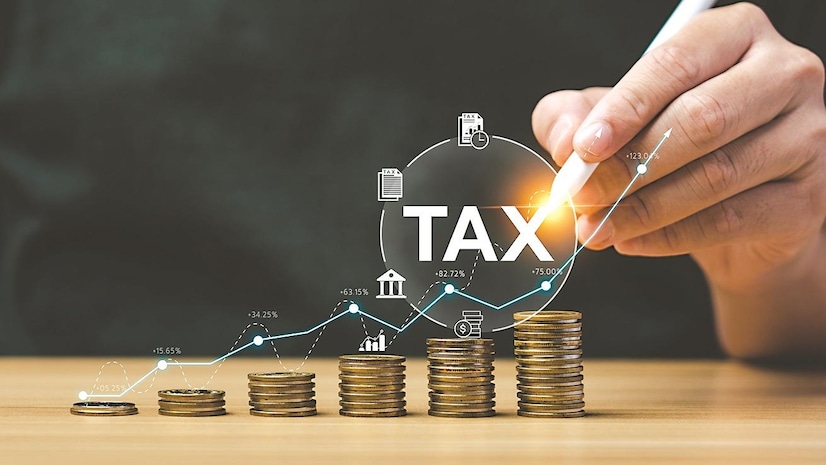Silvereye Certifications - your authoritative pathway to achieving and maintaining industry compliance with precision and trust.
FROM INCOME TO GST: A BEGINNER’S GUIDE TO UNDERSTANDING TAXES

Taxes are considered to be a cornerstone of any economy; it plays a vital role in the funding the public sector and the infrastructure of the economy. While no one in the country enjoys paying the taxes, understanding the purpose and the classification can help the business and the individuals to plan their future financial taxes accordingly and more effectively. This blog elaborately explores the concept of taxation, its importance, and the various types of taxes that are imposed in India and globally.
What are taxes?
Taxes could be defined as the mandatory financial charges or levies imposed by a government on individuals, businesses, and other entities to fund public expenditures. They support infrastructure development, healthcare, education, defence, and other welfare programmes.
WHY ARE TAXES IMPORTANT?
REVENUE GENERATION:
Taxes are to be considered the primary source of government income. Major government development programs are based on the tax that is earned by the government from the economy.
REDISTRIBUTION OF WEALTH:
Taxes collected by the government help in ensuring the equitable distribution of the resources in the economy.
ECONOMIC STABILITY:
Taxes collected by the government play a major role in bringing stability in the economy by controlling the inflation in the country’s economy.
ENCOURAGES COMPLIANCE AND REGULATION:
Taxes like excise duties helps in regulating the consumption of specific goods, thus maintaining compliance and regulations in the economy.
CLASSIFICATION OF TAXES
Taxes that our government imposes on the economy are broadly classified into two major categories: Direct Tax and Indirect Tax.
-
DIRECT TAX
Direct taxes are those taxes that are paid directly by the individual or the organization to the government annually. The burden of these taxes could not be shifted to the others. And direct tax is also subcategorized into various types and those are discussed as under:
TYPES OF DIRECT TAXES
INCOME TAX:
This tax is paid by an individual on their income or their corporate income, which is based on the predetermined slabs.
CORPORATE TAX:
This tax is imposed on the companies based on the net profit earned by the companies in the accounting year.
CAPITAL GAINS TAX:
These are the taxes that are paid to the government out of the profit earned from the sale of assets like property or stocks.
ADVANTAGES
It promotes equity as it is based on the ability of an individual to pay.
It helps in encouraging the transparency in the earnings of an individual or a corporate firm.
DISADVANTAGES
High compliance and an administrative cost.
In direct tax, there is a high-risk pf tax evasion.
-
INDIRECT TAX
Indirect taxes are those taxes that are levied on the goods and services. The burden of these taxes could be shifted to the end consumer. Indirect tax is also subcategorized into various types and those are discussed as under:
TYPES OF INDIRECT TAXES
GST is a comprehensive tax imposed on the supply of goods and services; it was imposed in replacing the multiple indirect taxes in India.
CUSTOMS DUTY:
Custom duty is a type of indirect tax imposed on all the goods that are imported or exported into the domestic or international market.
VALUE ADDED TAX (VAT):
It was replaced with GST but is still applicable to specific goods in some states.
ADVANTAGES
Simplifies collection as businesses act as intermediaries.
It has a wider tax base that the direct tax, as every person must pay at any income
DISADVANTAGES
Regressive nature as it affects all consumers equally.
Increases product/service costs.
OTHER TYPE OF TAXES
PROPERTY TAX:
Levied by local authorities on real estate properties to fund civic services.
PROFESSIONAL TAX:
It is a normal tax that is imposed on employment and levied by the state government.
STAMP DUTY:
Stamp duty is the tax that is charged on the legal documents like the property registration and other official stamping.
SECURITIES TRANSACTION TAX (STT):
It is the tax that is applied to all the transactions that are made on the stock exchange.
ROAD TAX:
It is the basic tax which is paid by every individual for owning and using the vehicle.
INDIA’S TAX STRUCTURE: A SNAPSHOT
India has a well-defined, hierarchical tax system.
CENTRAL GOVERNMENT TAXES
GST, customs duty, and income tax.
State government taxes:
PROFESSIONAL TAX, STATE GST (SGST).
Local Body Taxes
Property tax, water tax.
For comprehensive insights and additional resources on this topic, we invite you to explore our website.https://seyecs.com/
Copyright Notice
All content on this blog, including text, images, and graphics, is the property of Silvereye Certifications and Consulting Services Pvt. Ltd. and is protected by copyright laws. Unauthorized reproduction, distribution, or use of this material without written permission is prohibited and may result in legal action. If you wish to share or reference our content, please credit Silvereye Certifications and Consulting Services Pvt. Ltd. with a link to the original post. Thank you for respecting our intellectual property rights.
Enquiry Now!!
- Get in touch, and expect a call from us within 30 minutes.

